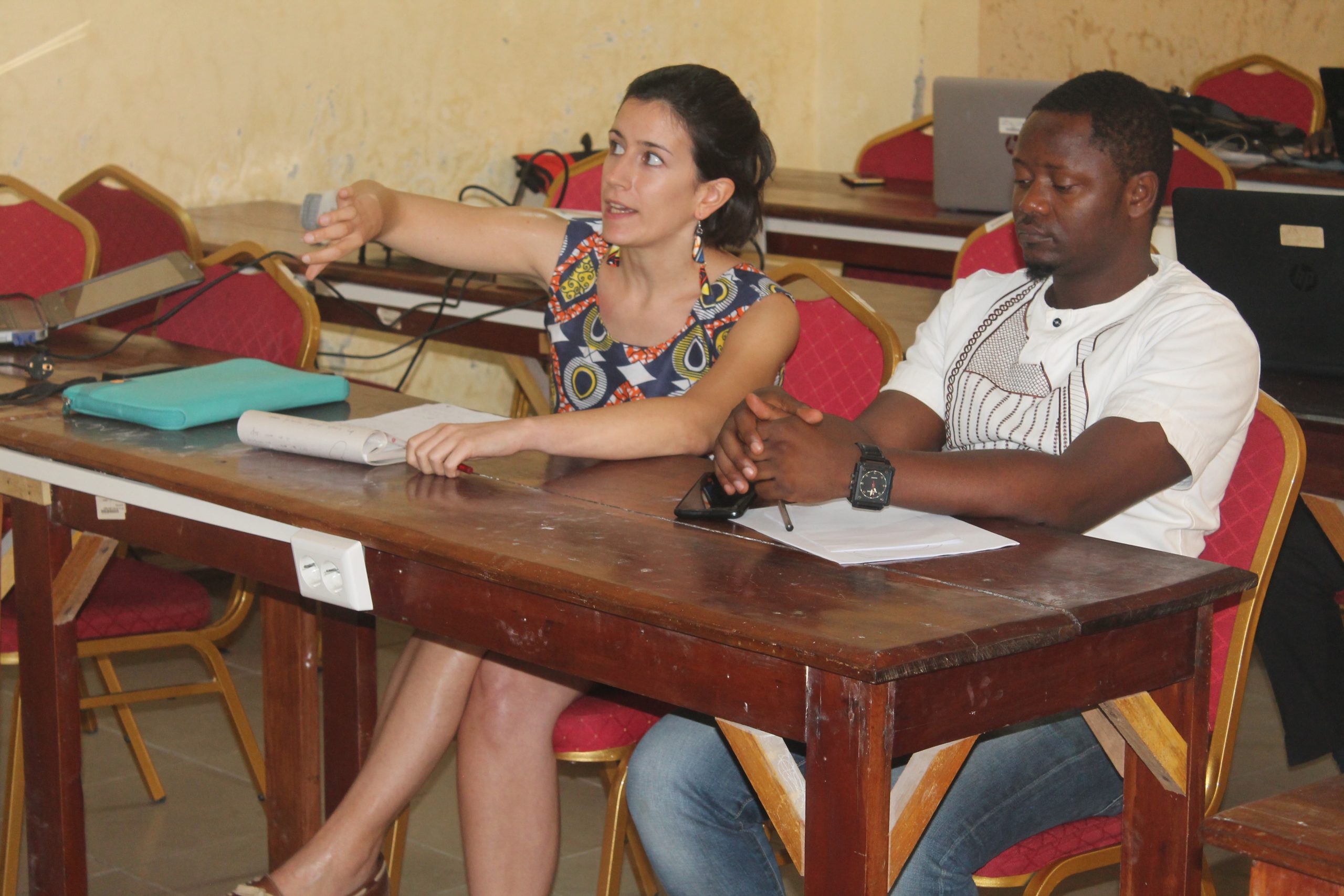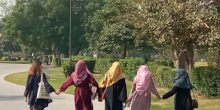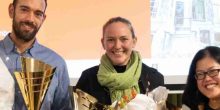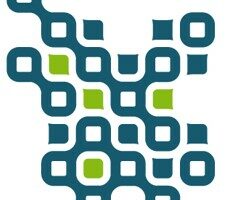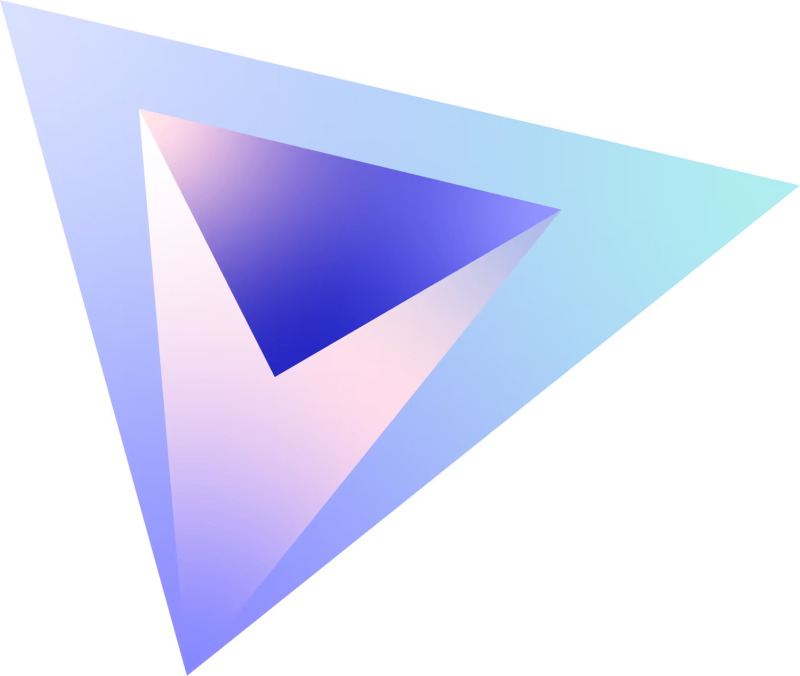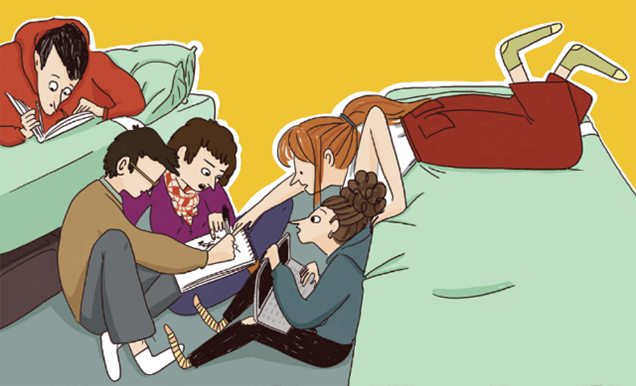In the past few years, I have been involved in several projects concerning mathematical education in Africa.
I was advised that a good place to start, if I wanted to explore the African mathematical landscape, was AIMS. That’s the African Institute for Mathematical Sciences, or the African Institute for Minimising Sleep, as the students I met liked to call it when they were overwhelmed by assignments. AIMS is a pan-African network of different institutes of excellence. There are currently five centres (South Africa, Ghana, Senegal, Rwanda and Cameroon) and each institute offers a one-year master program that attracts talented students from all over the continent. In 2018 I visited the centre in Cape-Town, in South-Africa, where I co-supervised a student for his final project. In January 2020 I taught a course about Differential Geometry at AIMS-Cameroon in Limbè.
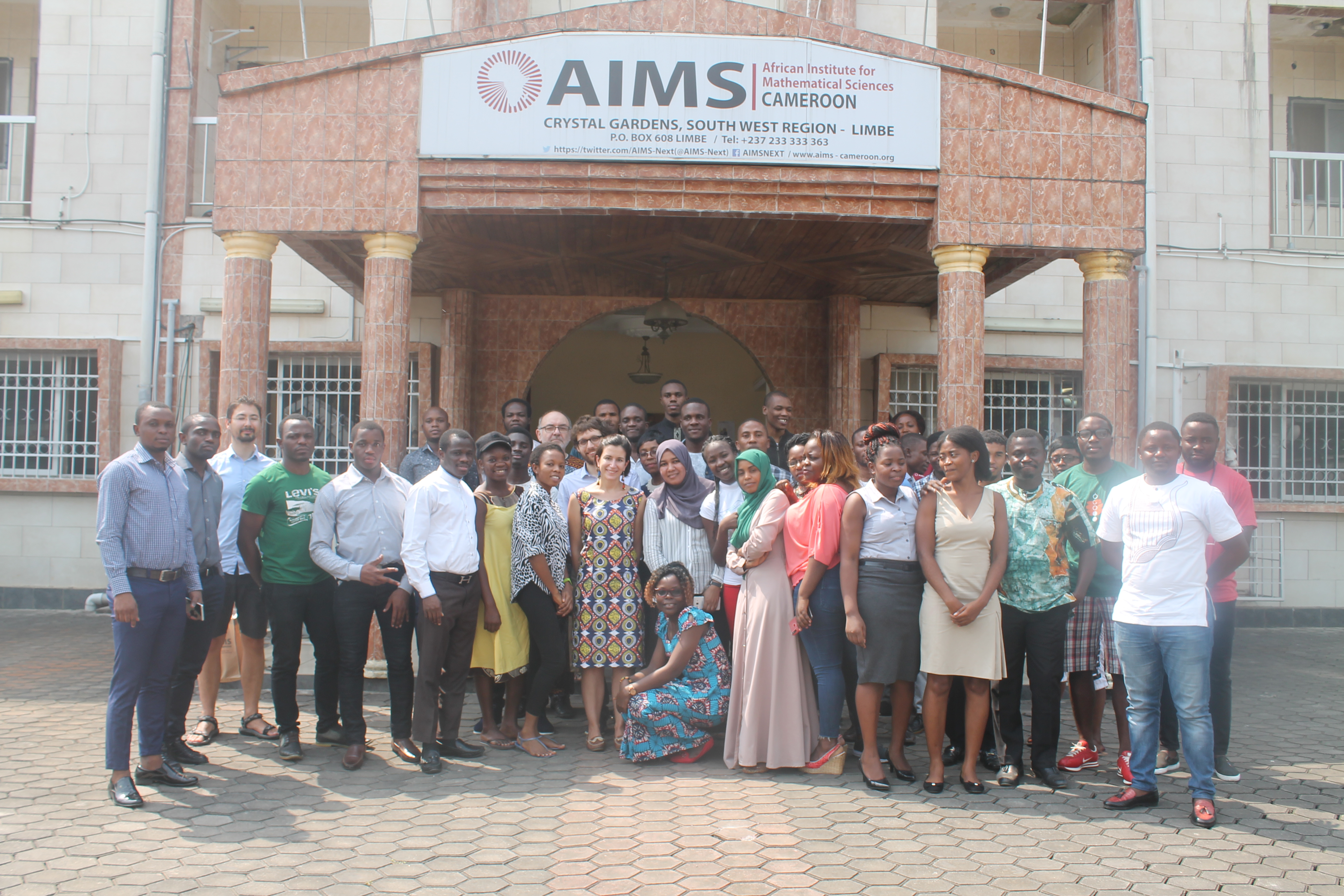
You can learn more about AIMS from his founder, Professor Neil Turok, in this TED talk.
The academic year at AIMS starts with some introductory courses that aim to provide common foundations for the students and a kind of warm-up to mathematical courses taught in English. This requires a bit of adjustments for students coming from French or Arabic-speaking countries (AIMS provides language classes throughout the year).
After that, the year is divided in blocks of three weeks and the classes are given by invited lecturers from local and foreign universities. From a personal point of view, I cannot recommend the experience more. It is incredibly immersive and I truly enjoyed the sense of community: you live and work in the same building with all the students, so you end up sharing much more than just the time of the lectures, including table tennis matches, French classes and trips to the beach.

The students come from all over Africa, so only by chatting with them you can learn a lot about the different countries and study experiences. On top of that, the centre in Cape-Town is literally in front of Muizenberg beach, one of the most famous surfing beaches in South Africa, while the institute in Limbè is next to the botanical gardens and a wildlife centre with gorillas and baboons.
AIMS attracts students with very different backgrounds, from computer science and business to physics and pure mathematics. This is purposely done, to encourage team-work between people with different expertise in order to create the next generation of Africa innovators. This brings some challenges for the lecturers. In my class, for example, I had students that were taking a pure mathematics course for the first time, while others had seen already some pretty advanced material.
The three week block is very intense, with the students following three courses, each involving several quizzes and assignments each week. Students are all hard-working and motivated, but for some of them it is hard to interiorise so many new notions and topics in such a short amount of time. Despite the stress, all the students I talked to were incredibly happy about their AIMS experience, they were valuing in particular the possibility of interacting with the lecturers and the important network of contacts they were provided with.
During the weeks in Cameroon, I decided to organise a meeting with the female students of the centre, to share some experiences of being a woman doing mathematics. Even though the circumstances were sometimes very different it was easy to relate my experience with theirs. Unfortunately, I realised that certain stereotypes know no geographical boundaries. Given these difficulties, I was very happy to discover that AIMS has an active diversity-club that is organising several activities to promote a more inclusive environment.
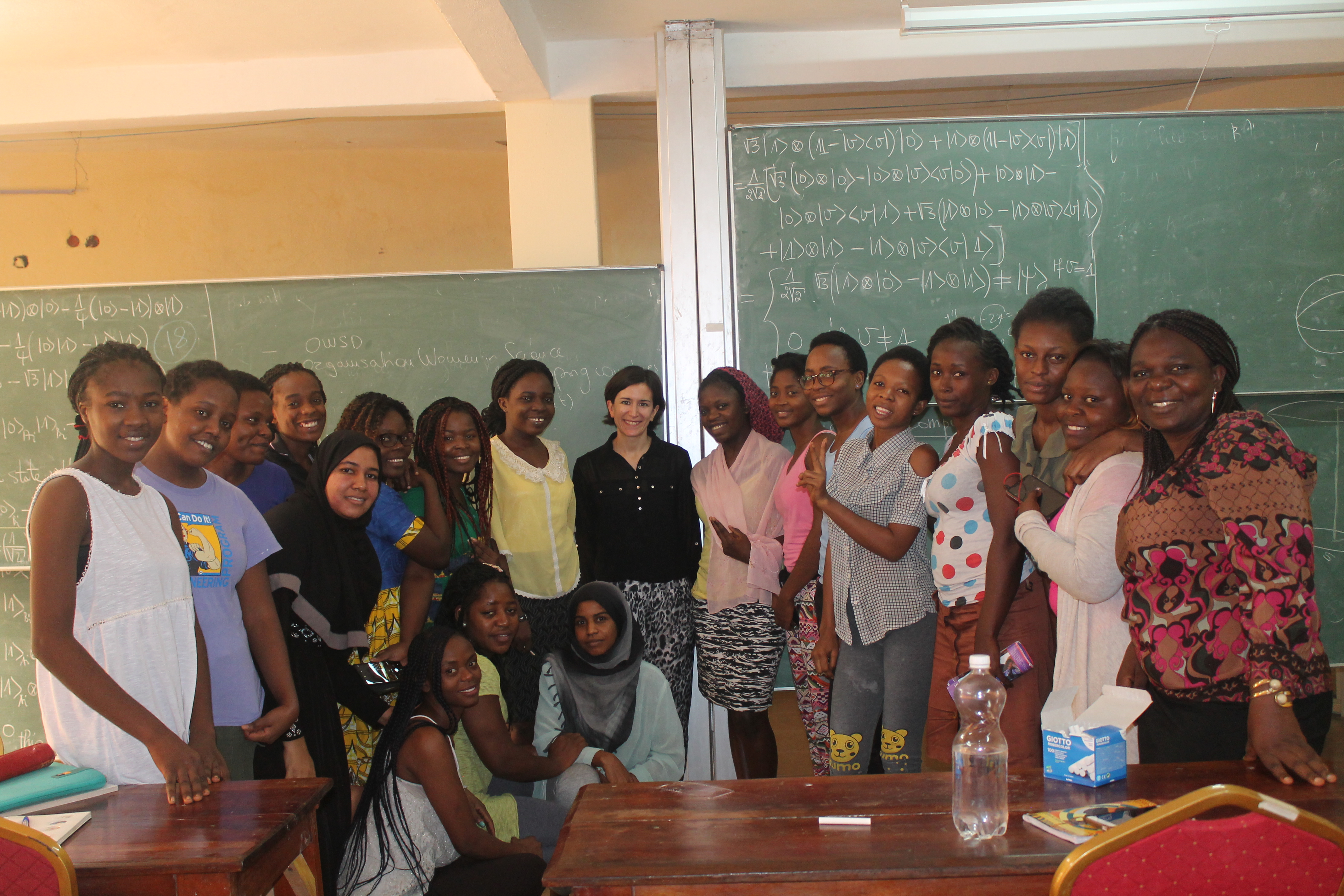
I have also supervised (or co-supervised) four students from AIMS so far. The first one, Mahefa, was from Madagascar. I learned that the academic system in former colonies is still shaped around the curriculum of the former colonial power. Countries that were under French rule tend to have a stronger tradition in pure mathematics, and that is reflected in the interests of the students at AIMS. Mahefa was a very bright student. I co-supervised him together with Alberto Cazzaniga, a colleague and friend of mine that at the time held a postdoctoral fellowship in Cape Town. I interacted a lot also with Jean-Micheal, another student from Madagascar that Alberto was supervising. Mahefa and Jean-Micheal were inseparable and I was really happy when they both obtained a scholarship for the master program at the Central European University in Budapest. Mahefa has recently started a PhD at TU-Eindhoven.
After the course in Cameroon, three students had asked me to supervise them for their final AIMS thesis. Janvier, from Congo, Herilanto, from Madagascar, and finally Romaric, from Cameroon, who I co-supervised with Nicolau Sarquis from Auckland in New Zealand. The communication was not always smooth because the internet connection at AIMS is not completely reliable, so it was not easy to have Zoom meetings and we often had to rely on frequent email exchanges. The AIMS students have the help of local tutors, but not all of them have the necessary background to help the students with technical questions. Also, all of us had to adjust quickly to the new regulations and the difficult working conditions that we had to adopt in the effort to control the spread of the Coronavirus pandemic. Taking into account all these challenges, I was even more proud when all three of my students successfully defended their thesis and graduated from AIMS at the end of May last year.
All of them want to continue studying pure mathematics and do a PhD, ideally in a western university. Scholarships for a PhD position are very competitive, especially for students coming from Africa, so the path in front of them is far from smooth. However, not all of the students I met were dreaming about coming to Europe: Peguy, a PhD-student in physics that worked as a tutor for my course, did a short internship in France and told me that after all the negative stereotyped he had to face there, he decided not to apply to Europe again (plus “French food is too plain”). Agnes, a shy girl from Nairobi following my course, when I asked her what were her plans after AIMS, had not a moment of hesitation and said she wanted to study data science and specialise in sustainable agriculture, since water shortage due to climate change is one of the main problems that Africa will have to face in the near future and she wanted to help her country.
Outside of AIMS, I interacted with some research communities in pure mathematics at Makerere University in Uganda, at Ibadan in Nigeria and at the University of Nairobi in Kenya. In August 2018, I went to Nairobi for three weeks where I co-organised a workshop in algebraic geometry and a pre-workshop school for local master students. The local researchers in Nairobi complained about the teaching overload and the isolation from the main mathematical community due to lack of funding for travelling to conferences and for research visits. Professor Jared Ongaro is dedicating a lot of time and energy in trying to strengthen the local algebraic geometry group. He is convinced that, at least for the moment, the best strategy is to help the best students to get PhD positions outside of Africa, hoping that after that at least some of them will decide to go back to Nairobi. Professor Ongaro was also stressing the importance of having workshops there and bringing foreign researchers to Nairobi to give both the students and the research community more possibilities of interactions and networking, even if only for a short time.
Africa has a fast-growing young population that in the next years will have even broader access to higher education. So, despite the many challenges that the African mathematical community is facing, there are several reasons to hope for the future. I am looking forward to the end of the pandemic and to be able to go back to Africa and keep learning about the local mathematics and explore possibilities of connection and interaction with western institutions.
In my blog you can find more about my experiences from teaching in Africa.

